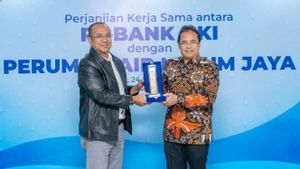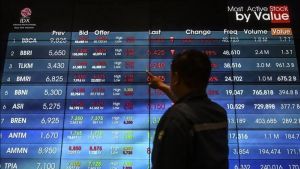JAKARTA - A study from the Urgewald institute and the Institute for Energy Economics and Financial Analysis (IEEFA), noted that there are still many banks that provide loans to coal companies listed on the 2020 Global Coal Exit List (GCEL). Even though the Financial Services Authority (OJK) has issued OJK Regulation (POJK) Number 51/POJK.03/2017 regarding the implementation of sustainable financing by banks.
The information was also confirmed by the Special Staff of the Minister of Energy and Mineral Resources (ESDM) for Mineral and Coal Governance, Irwandy Arif. He mentioned that as many as six Indonesian banks were busy providing funding for the coal industry, even reaching Rp89 trillion. The banks are BNI, Mandiri, BRI and BCA.
The disbursement of funds to finance coal mining companies mostly occurs in South Sumatra to Kalimantan.
Responding to this, University of Indonesia Criminal Law Expert Eva Achjani Zulfa said BNI should prioritize prudential banking principles because what is managed is public funds. This is done so that there are no unlawful acts within the company.
"Basically, in banking institutions, the principle of prudential banking is known in managing finances and financing that involves banks. So the attitude of banks must be very careful because it involves customer funds," he told reporters, Thursday, May 12.
If forced to finance, banks must also obtain guarantees or collateral from mining companies that intend to borrow funds. If an indication of a violation of the law is found, law enforcers such as the KPK and the Prosecutor's Office must step in.
"If this is violated by the provisions in the Banking Law regarding prudential banking, it is contained in Article 49 paragraph (2) letter b, where the criminal threat is a minimum of 3 years and a maximum of 8 years (imprisonment) and a maximum fine of Rp. 100 billion," said Eva.
Meanwhile, Banking Observer Deni Daruri said that there was a petition for BNI to develop a financing strategy from black to green.
"The petition is well-intentioned. BNI should also prepare a roadmap and strategy for switching financing from black to green, to facilitate and mitigate various risks going forward," Deni told reporters.
Then related to the emergence of allegations of funding for coal companies without collateral, Deni said that there needs to be transparency to the public, so as not to make assumptions.
"If the public finds out later that it will affect the company's image, the company's ESG performance will also decline and the impact will be detrimental to the company itself," he said.
Related to this problem, Deni said that the Financial Services Authority (OJK) has actually provided 12 categories of sustainable business activities that become the reference for LJK (Financial Services Institutions) for financing.
"However, there have been no sanctions or incentives given to LJK. There needs to be supervision and review (sanctions and incentives) if you want sustainable financing to really work," he said.
The English, Chinese, Japanese, Arabic, and French versions are automatically generated by the AI. So there may still be inaccuracies in translating, please always see Indonesian as our main language. (system supported by DigitalSiber.id)










